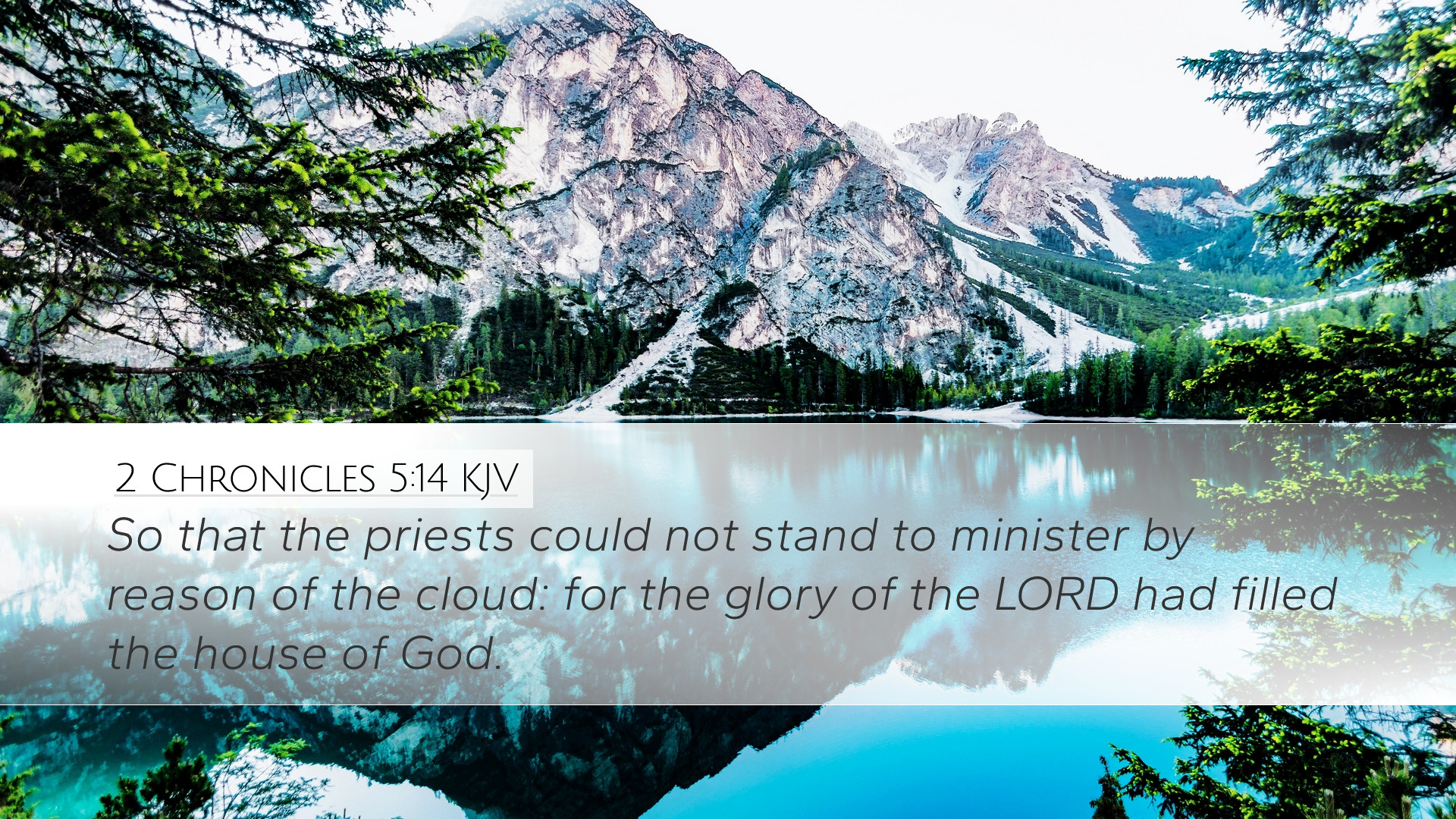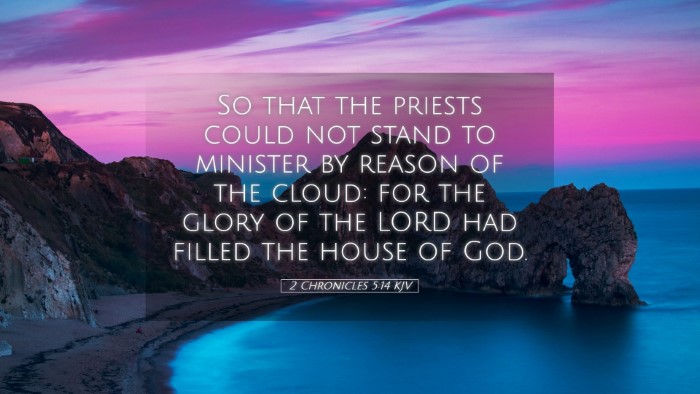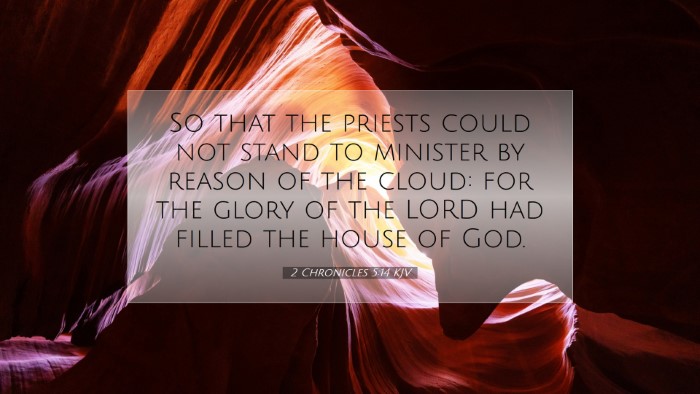Commentary on 2 Chronicles 5:14
Verse Summary:
2 Chronicles 5:14 states, "So that the priests could not stand to minister by reason of the cloud: for the glory of the LORD had filled the house of God."
This verse captures a pivotal moment in the consecration of the temple, illustrating the overwhelming presence of God among his people.
Context of the Verse
This verse occurs during a significant moment in Israel's history, specifically in the dedication of Solomon's temple in Jerusalem.
Following the completion of the temple, Solomon gathers the people to witness the transfer of the ark of the covenant, signifying God's presence with Israel.
The chapter details the preparations and the culmination of the temple's solemn dedication, leading to the extraordinary manifestation of God's glory.
Insights from Public Domain Commentaries
Matthew Henry's Commentary
Henry emphasizes the symbolic meaning of God's glory filling the Temple.
He notes that this is not just a physical phenomenon but a profound spiritual reality.
The inability of the priests to stand signifies the sufficiency of God's presence, overwhelming human effort and ritualistic service.
- Divine Presence: The glory of the Lord reveals the divine approval of the temple as God's dwelling place.
- Humility of the Priests: The inability to minister serves as a reminder of the necessary humility before God.
True worship must recognize the supremacy and majesty of God over human activities.
- Worship in Awe: The reaction of the priests suggests that worship involves reverence and recognition of God's holiness.
Albert Barnes' Notes on the Bible
Barnes highlights the profound impact of the cloud, often associated with God’s presence, seen throughout the scripture—especially in the Exodus narrative.
He draws attention to the Shekinah glory, a term used to describe the visible manifestation of God's presence among His people.
- Historical Significance: The cloud occupies a central role in Israel's history, symbolizing God's guidance during their wilderness wanderings.
- Contrast with the Tabernacle: Unlike the portable tabernacle, the filled temple represents permanence in God's dwelling among His people.
- God's Approval: The cloud’s descent is viewed as a sign of divine consent, marking the temple as a sacred space.
Adam Clarke's Commentary
Clarke provides a detailed explanation of the cloud's significance. He notes that the priests' inability to minister reflects the overwhelming nature of God's glory.
This, he asserts, aligns with the biblical theme that God's presence brings transformation—a theological reality for worshippers.
- Theological Implications: Clarke insists that the events reflect a foundational theological truth: humanity's encounter with God restructures ministerial roles.
- Spiritual Awakening: The moment captures the essence of transcendent worship, inviting believers to anticipate such divine encounters in their spiritual journeys.
- Repentance and Reverence: Clarke interprets this inability to minister as a call to introspection and reverence before a holy God, emphasizing the need for a sincere heart in worship.
Theological Reflections
This verse serves as a reminder of the majesty of God and the transformative power of His presence.
The manifestations of divine glory serve several theological principles:
- The Holiness of God: God's holiness demands recognition and reverence; this event depicts the necessity for believers to approach Him with awe.
- The Role of Mediators: The priestly role shifts dramatically when confronted with divine glory, revealing a need for Christ's ultimate mediation.
- Corporate Worship: The communal nature of this event underscores the importance of corporate worship in experiencing God's presence.
Conclusion
2 Chronicles 5:14 illustrates a climactic moment in Israel's worship, where the overwhelming glory of the Lord fills the temple, rendering the priests unable to continue their duties.
This divine encounter calls believers today to examine their own approach to worship, encouraging a posture of humility and reverence.
As pastors, students, theologians, and scholars explore this text, they may reflect on the necessity of recognizing God's majesty and the transformative implications of His presence among His people.


